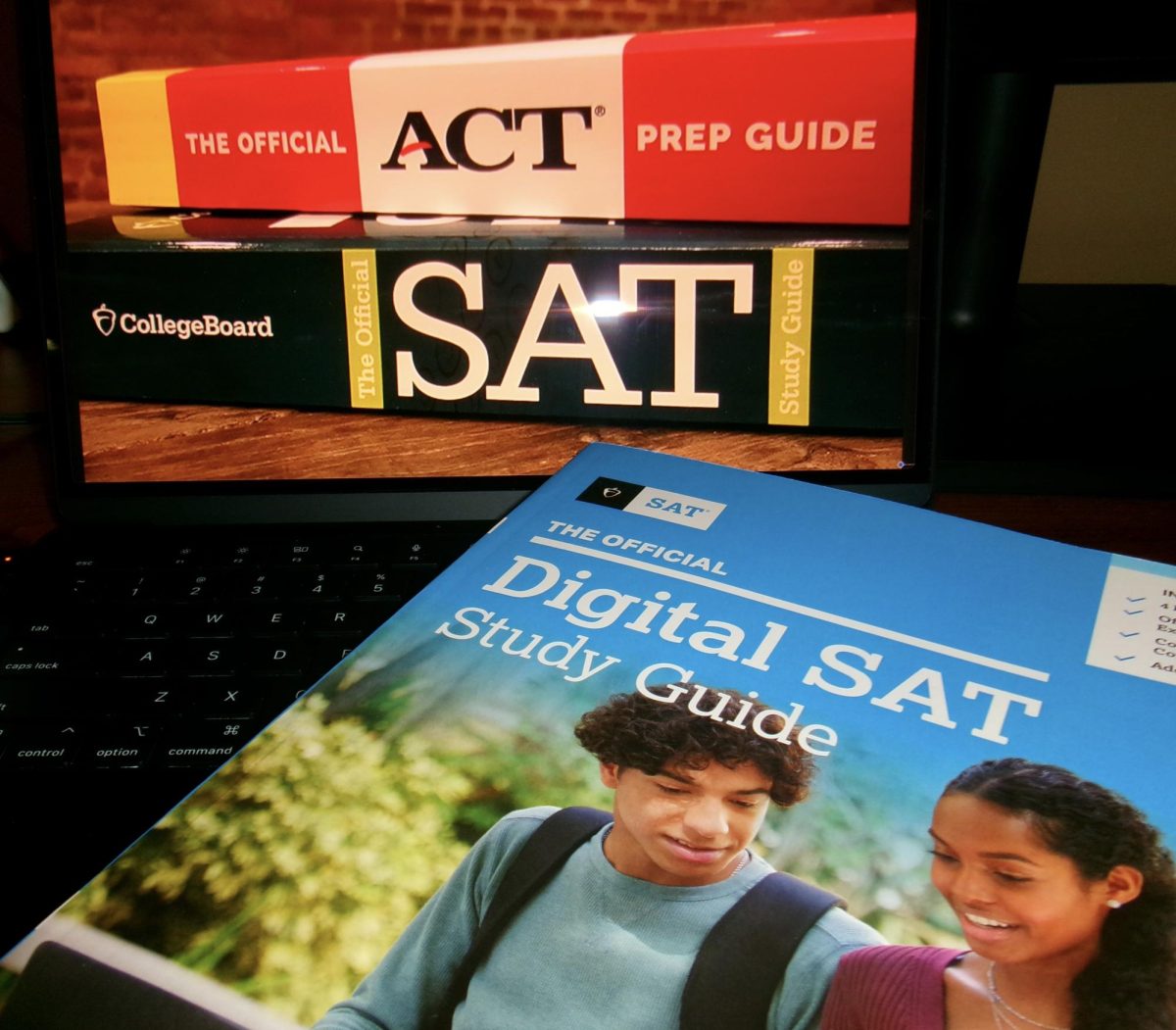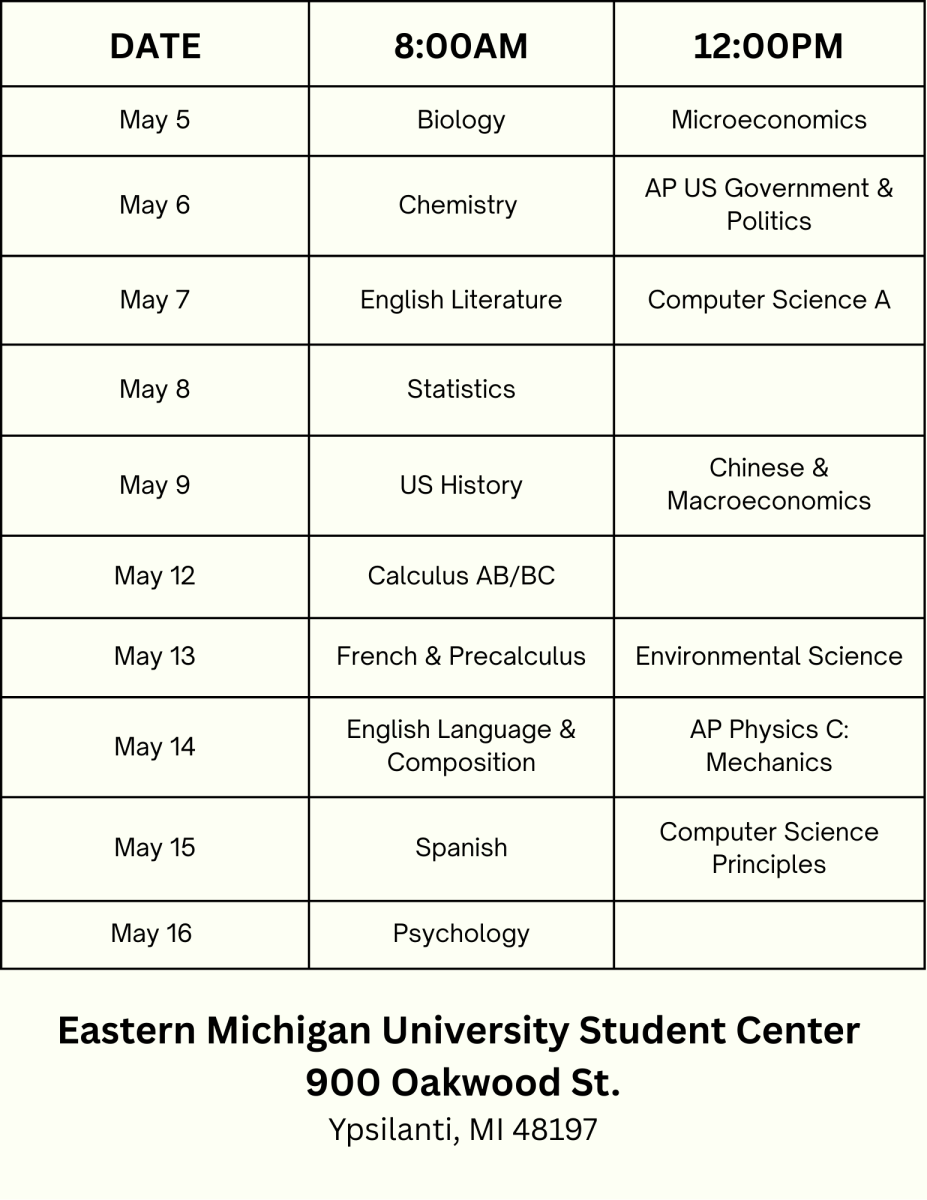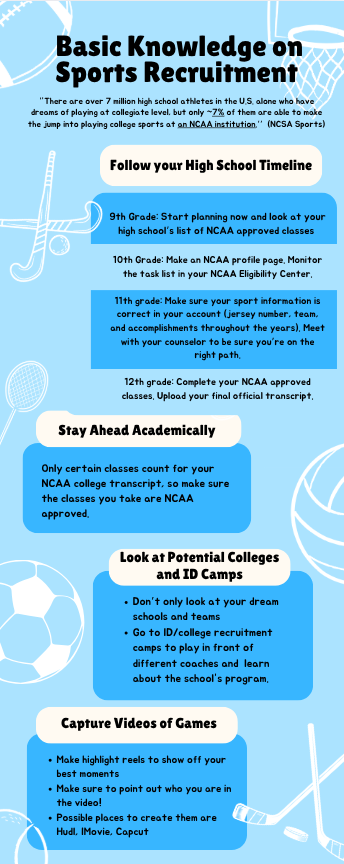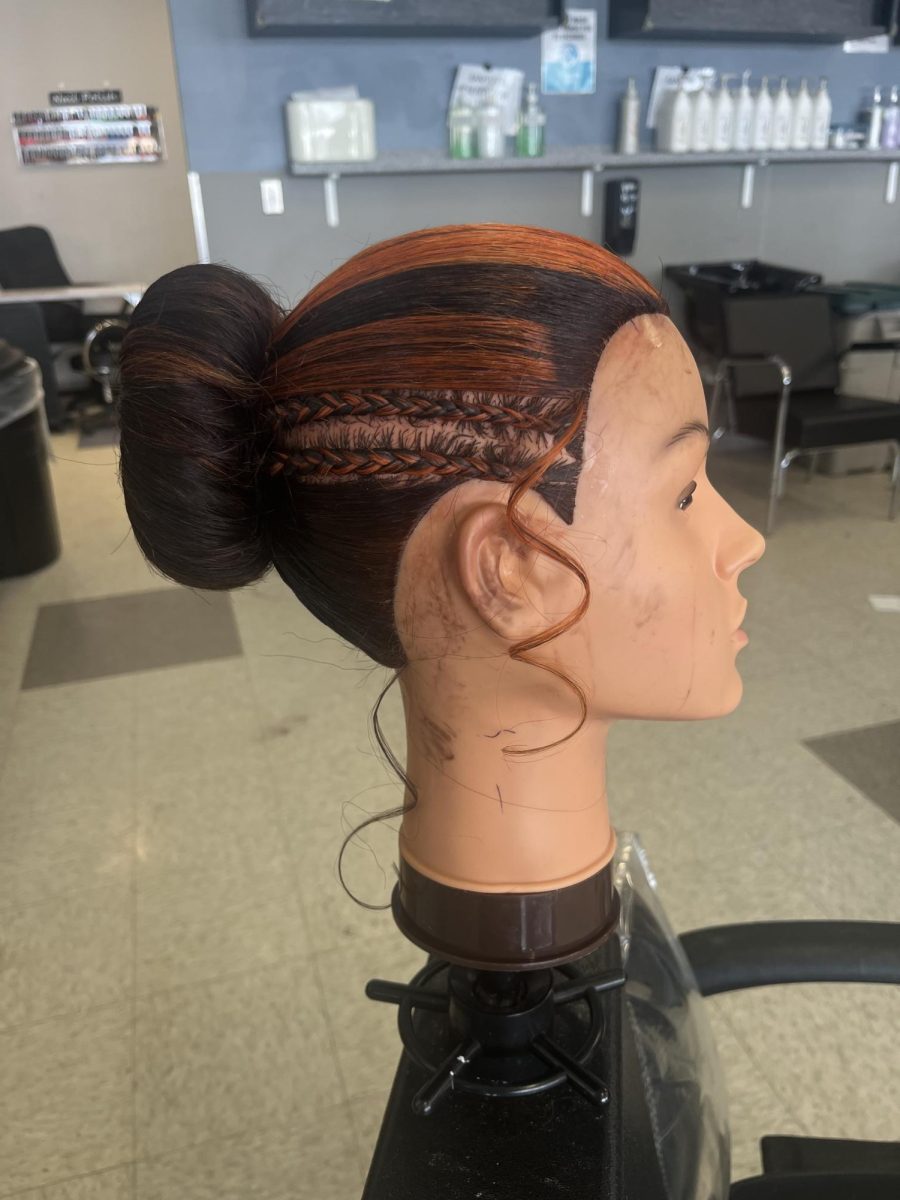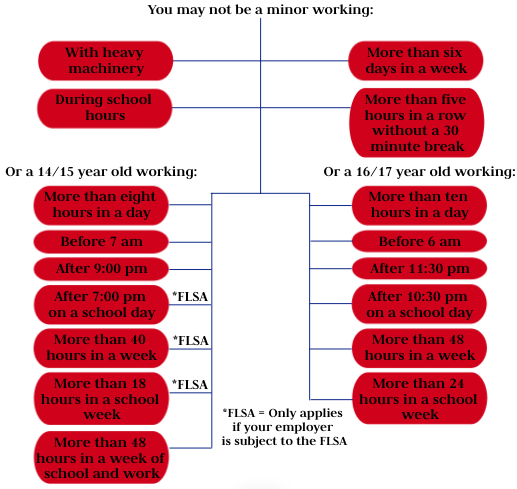
Are you trying to get a summer job? As of 4/26, 171 work permits, forms that allow minors to start jobs, have been signed by Skyline’s office this year, and the number can only increase.
If you want to join the ranks of minor workers, below is a how-to guide to navigating the laws that govern your labor.
Michigan’s Youth Employment Standards Act (YESA) and Improved Workforce Opportunity Wage Act (IWOWA), as well as the federal Fair Labor Standards Act (FLSA), are the main laws that govern youth labor.
YESA mandates that minors must fill out a work permit form prior to beginning employment. The exact form will vary depending on age: CA-6 is for those 14/15, and CA-7 is for those 16/17.
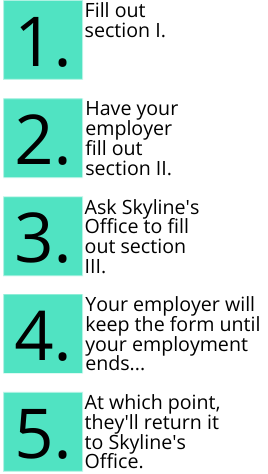
Students enter their personal information to fill out section I themselves. Employers fill section II, which details what the job duties are, as well as general information on the company. Finally, the school fills out section III, storing a copy, and the employer holds on to the completed form for the duration of the minor’s employment.
“Students can either obtain a physical copy of a work permit from us in Skyline’s main office or can download the form from the state’s website,” said Brodie Brockie, Office Manager at Skyline. Any of Skyline’s office professionals can complete the form it out, including Brockie, Jefferson Bilsborrow, Jolene Everard, Katrina Jenkins, and Deanna Tippett.
YESA and the FLSA both place limitations on what hours minors can work, depending on their age.
The diagram illustrates this, and the Hours of Work section on the work permit form spells it out.
However, some restrictions are confusing and redundant. For instance, the weekly average working hours restriction, which specifies that a minor can only work 48 hours in any given week, although that varies with time of year and age. But minors can also average no more than eight hours per day, which is calculated by the total number of hours worked divided by six days per week, the maximum possible days per week, according to Jennifer Fields, Manager of Michigan’s Wage and Hour Division. Therefore, it would be impossible to violate the weekly average rule without also violating the other rules.
If any restrictions confuse you, it’s possible that the law itself is errant, though most do meaningfully exist to protect minors. “Your first, primary, job is school,” said John Boshoven, head of Skyline’s College and Career Center (known as the Cube, website here). “So don’t let your job interfere with your top performance at school. If it begins to do that, push back on the hours.”
The FLSA restrictions only apply to businesses that make more than $500,000 annually, involve interstate commerce, or are a certain type of business (governmental agencies or medical providers, among others). However, small businesses usually are exempt. Additionally, if you’re personally involved in interstate commerce, you’re covered.
Additionally, minors can’t work with heavy machinery or dangerous items, like forklifts or fryers. These activities are considered “oppressive labor” and carry high risks of injury. Employers can’t have minors use such equipment, due to minors’ particular vulnerabilities.
Workers in general need to be protected from wage theft, which is a pervasive problem. Wage theft is the employer taking or keeping money that should rightfully be the employee’s.
“The total dollar value of wage theft in the United States is greater than that of all other property crimes like robberies and car theft combined, so the scope of it is really massive,” said Todd Ryan, director of Washtenaw County’s Economic Justice Unit (EJU). “Another issue that’s on our radar: tip theft, where a restaurant is not passing along to tips to the workers.”
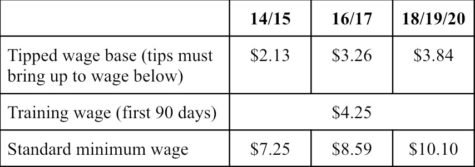
To protect yourself from wage theft, it’s essential to know what wages you should be earning. Michigan’s minimum wage, set by IWOWA, is $10.10, but only applies to businesses with two or more workers over 16, and subminimum wages apply to minors. 16 and 17 year olds can be paid 85% of the minimum wage: at least $8.59. 14 and 15 year olds aren’t covered by IWOWA, so their minimum wage is federally determined: $7.25, if their employer is subject to the FLSA (see above). For new hires aged 16-19 or 14-15s whose employers fall under the FLSA, there is a “training wage” of $4.25 for the first 90 calendar days. Past those first 90 days, they should earn the standard minimum wage for their age. If they’re a tipped worker, the tipped wage is 38% of the applicable minimum wage, if IWOWA applies, plus tips to bring it up to either the training wage or their minimum wage: $3.84, $3.26, or $2.13 are the base.
All these laws exist to protect minors: keeping them from from dangerous positions and ensuring that students have adequate time for schoolwork, sleep, and relaxation, and are receiving fair wages.
“There’s a really wide variety of ways that businesses can take advantage of the workers,” said Ryan. “There’s all these inherent power dynamics. And then if the business is exploiting the workers in a way that breaks the law, then that’s harming the workers, but also the consumers and the people as a whole.”
If you or someone you know has their labor rights violated, contact the government. Generally, the Wage and Hour divisions, whether state or federal, are good points of contact. Locally, the Economic Justice Unit is part of the Washtenaw County Prosecutor’s Office, dealing specifically with civil and criminal labor cases, among other economic justice issues.
“We’re definitely a local resource people can reach out to. And then if we’re not the right place to move forward with it, we’ll point them toward the right places as best we can.” Ryan said. “For example, if it’s workplace discrimination on the basis of race, or sex, or gender, that’s probably going to go through the federal Equal Employment Opportunity Commission, or the state’s MDCR, our Michigan Department of Civil Rights. We want to encourage people to assert their rights in every way they can: don’t just go to us, go to the feds, go to the state, go to private attorneys, look up your rights online, take direct action, look into every option.”
Getting a job can be fun, fulfilling, and financially beneficial. The CUBE can help you find jobs that match your skills and interests. However, taking care of yourself and protecting your rights should be your foremost priority.
Brockie emphasized the importance of a work-life balance: “Make sure you’re not taking too much responsibility that it’s going to interfere with your coursework. A job can be a great way to learn responsibility, pick up skills, and earn money, but your education is the most important thing at this time in your life.”
ADDENDUM: If you have any specific queries about youth labor law, the author, Kathryn Plotner, is happy to discuss with you. This topic is extremely convoluted, with many niche edge cases, and this article couldn’t cover all of them.


